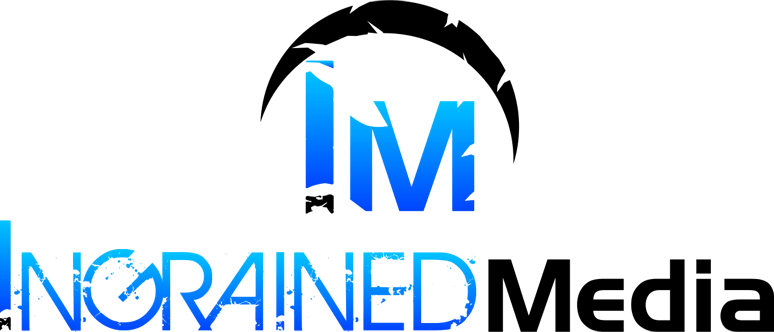Content Marketing: Proven Strategies for Engaging and Converting Your Audience
Why is content marketing crucial for your business growth and customer engagement? Our approach at Ingrained Media is not just about creating content; it’s a tactical method to attract, engage, and retain a dedicated audience, culminating in growth and loyalty.
Here you’ll find out about our actionable content marketing strategies that aim to forge stronger connections with your audience and bolster your brand’s standing in the marketplace.
Key Features
Our content marketing comprises strategic creation and distribution of various types of content, aiming to build trust and engage a specific audience, ultimately enhancing brand awareness, conversions, and revenue.
We begin by setting a solid foundation for effective content marketing that includes setting clear, SMART goals, understanding and segmenting the target audience to create resonant content, and developing a consistent brand voice across all channels.
High-quality content creation focuses on storytelling to connect with the audience emotionally, utilizing diverse formats like videos and podcasts to cater to different preferences, and optimizing for SEO to increase visibility.
The Essence of Content Marketing
 For our team content marketing goes beyond just creating content; it’s a strategic approach that targets attracting and retaining a specific audience. The strategy encompasses creating and distributing diverse content types clearly defined audience, such as:
For our team content marketing goes beyond just creating content; it’s a strategic approach that targets attracting and retaining a specific audience. The strategy encompasses creating and distributing diverse content types clearly defined audience, such as:
- Blogs
- Newsletters
- Social media posts
- Videos
The goal is to engage, provide value, build stronger connections with your audience, address their concerns, and guide them towards your brand. This process helps foster trust, which ultimately leads to selling products and services.
Implementing content marketing brings multiple benefits, such as various content marketing examples that can help in:
- Boosting conversions
- Improving brand awareness
- Increasing revenue
- Establishing your business as an industry leader
Simply put content marketing can build trust with potential customers on a broader scale, a key factor for customer retention and loyalty. This process eventually leads to a snowball effect inbound marketing, generating higher returns with each new piece of content published.
The most prevalent forms of content marketing encompass a range of media types, including:
- Blogs
- Videos
- Podcasts
- Newsletters
- Social media posts
- White papers
These are disseminated across multiple platforms to effectively connect with the audience.
A well-planned and successful content marketing strategy is necessary to meet these objectives and prevent content marketing efforts from underperforming.
Building a Solid Content Marketing Foundation

Before immersing yourself in the content creation process, it’s important to establish a solid foundation for your content marketing strategy. This involves setting clear goals, identifying your target audience, and developing a consistent brand voice. Our team has a trusted template to help identify these and set actionable plans to maximize results.
Let’s examine each of these foundational elements in more detail.
- Setting Clear Goals
- Identifying Your Target Audience
- Developing a Brand Voice
Comprehending your target audience is vital to the success of your content marketing strategy. It helps you:
- Create content that specifically caters to their needs
- Connect with them
- Play a fundamental role in driving profitable customer actions in content marketing.
One effective way to understand your audience is by creating buyer personas. These are comprehensive profiles that help businesses understand their audience and recognize the kind of content that will resonate with different segments. It’s essential to consider:
- Who these personas are
- Their goals and challenges
- Potential objections
- Their content preferences.
Another key aspect of understanding your audience is customer segmentation. By dividing your customers into groups based on their characteristics and behaviors, you can communicate more effectively and build trust with your audience.
Crafting High-Quality Content
- Creating compelling content that tells a story
- Using various content formats to cater to your audience’s preferences
- Optimizing your content for search engines.

- The Power of Storytelling
- Utilizing Various Content Formats
- Optimizing Content for SEO
Storytelling is a potent instrument in the domain of content marketing. It has the ability to capture the audience’s attention, evoke emotions, and make your content memorable. Stories help establish a connection with the target audience, effectively communicate a brand’s values and mission, and captivate the audience through a coherent narrative structure and plot.
Whether it’s a personal story, a customer success story, or a story about your brand’s journey, storytelling can foster a deeper connection with your audience. Using storytelling in your content marketing strategy can significantly boost engagement. It serves as a powerful and effective method to captivate and connect with the audience, ultimately inspiring them to take action and establish a stronger bond with the brand.
- Blogs
- Video content
- Podcasts
- Newsletters
- Social media posts
- White papers
- User generated content
Search Engine Optimization (SEO) is an integral component of content marketing. It helps your content achieve top rankings in search engine results, thereby increasing its visibility to the intended audience.
SEO involves strategic organization of content into topic clusters and the utilization of tools such as Keyword Manager to optimize your blog posts. By employing the right keywords and using them strategically in your content, you can improve your ranking on search engines and increase the visibility of your content.
Effectively optimizing content for SEO involves several key elements. These include crafting engaging headlines, staying updated with current content trends, and refining proficiency in the preferred media formats of the target audience.
Distributing and Promoting Content Effectively

Producing high-quality, engaging and relevant content, is only a part of the challenge. The other half involves distributing and promoting your content effectively. This is achieved through leveraging social media, email marketing, and influencer collaborations.
Let’s explore these avenues in more detail.
- Leveraging Social Media
- Email Marketing and Newsletters
- Collaborating with Influencers
- Disseminate and promote content
- Interact with customers
- Share engaging content
- Increase content sharing
- Potentially result in wider reach and consistent website traffic.
- Newsletters
- Podcasts
- Social media posts
- Videos
- Welcome emails or welcome series
- Promotional emails
- Guides
- Blogs
- Diverse content designed to incentivize loyalty and interact with the audience.
- Heightened brand awareness
- Broader access to the target audience
- Bolstered credibility and trust
- Augmented engagement and interaction
- Cost-efficient marketing
- Define their goals
- Target the right audience
- Establish clear collaboration guidelines
- Provide value to the influencers and their audience
- Ensure that the collaboration aligns with the brand’s message and values.
Measuring Content Marketing Success
After implementing your content marketing strategy, it’s important to evaluate the success of your efforts. By identifying relevant KPIs and analyzing data, you can determine the effectiveness of your strategy and make necessary adjustments to improve results.

- Identifying Relevant KPIs
- Analyzing Data and Adjusting Strategies
Key Performance Indicators (KPIs) are quantitative, relevant, and easy-to-calculate metrics utilized to measure the performance of content campaigns. Some examples of KPIs include:
- Increased social media interest
- Brand visibility
- Improved SEO ranking
- Engagement
These metrics help you track the success of your content and make data-driven decisions to improve your campaigns.
Identifying relevant KPIs is crucial in measuring the success of your content marketing efforts. KPIs serve as quantifiable metrics employed by content marketers to monitor the effectiveness of their content initiatives and ensure alignment with their business objectives.
Several pertinent KPIs for content marketing encompass average session duration, referral traffic, social media likes, comments, shares, and follower growth. These metrics can help you track the success of your content marketing strategy and make necessary adjustments to improve results.
- HubSpot Marketing Analytics and Dashboard Software
- Google Analytics
- Rockee
- Hotjar
Staying Ahead of Content Marketing Trends
- The growing need for visual content
- An emphasis on quality rather than quantity
- The utilization of short-form videos
- The development of content that highlights brand values and empathy
- Exploring innovative AI applications
- Navigating challenges in social media
- Emphasizing fundamental principles of content marketing
- Strategically leveraging paid ads and social media platforms
Elevate Your Brand With Our Content Marketing Services
Frequently Asked Questions
The 3 C's of content marketing are Creation, Curation, and Conversation, as they form the basis of a successful online content marketing strategy.
A content marketing strategy is important as it guides prospects through the buyer journey and helps achieve business objectives, ensuring successful content marketing efforts.
Content Marketing Institute works to advance the practice of content marketing, through online education and in-person and digital events.
To identify your target audience, create buyer personas and segment your customers based on their characteristics and behaviors, helping you understand their needs and preferences. This will allow you to create tailored content that resonates with them.
To create high-quality content, incorporate storytelling, use various content formats, and optimize for SEO. This will make your content engaging, informative, and easily discoverable by your audience.
You can effectively distribute and promote your content through social media, email marketing, and influencer collaborations, maximizing your content's reach online visibility and engagement. Our team at Ingrained Media can assist with each step of this process.

